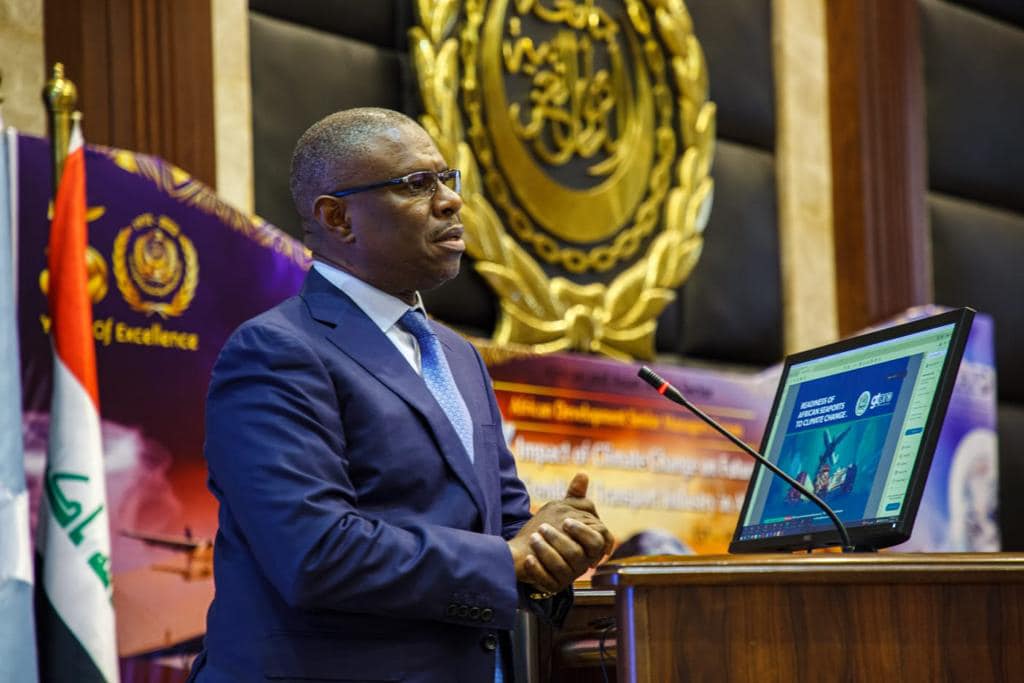Last week, Nigeria’s Supreme Court took a fundamental step towards dismantling the grip of state governors on the local government system and local government funds. The Supreme Court ruling on a suit filed by the Attorney General of the Federation, Lateef Fagbemi (SAN), pointedly said the governors were undermining the functionality and operations of the local government system. They stretched it further by inferring that the governors were hell-bent on destroying democracy. In this landmark judgment, the Supreme Court made it clear that it is unconstitutional for state governments to control, withhold or tamper with funds meant for local governments and prohibited any further allocation of local government funds to state governments or funds to councils without elected officials.
Even with the best of intentions, the judiciary exercised legislative authority and redefined the fundamental concepts of federalism. With this move, Nigeria’s 774 local government councils will receive allocations directly from the Federation Account, circumventing the State-Local Government joint accounts prescribed by the constitution in Section 162(6) and governors’ interference. This decision aims to ensure that state governments do not misappropriate local government funds and to provide financial independence for local governments. The court further directed that governors cannot dissolve democratically elected local government officials because it violates our 1999 constitution.
Presently, Local Government Areas are provided for and captured in the constitution, but they are just extensions and appendages, which, in fact, are at the mercy of state governments. Governors and regional leaders have consistently opposed any attempt to secure local government autonomy from the post-independence days (1960-1966). The subordination of that level of government and the alleged embezzlement of its finances reached a fever pitch in 1999. At some point, governors elected on the platform of the All Progressives Congress (APC) cautioned the National Assembly in 2013 to focus on its business and forget local government autonomy. The governors contend that other presidential-style federations, from which we derived our model, all have two tiers of federating units. The local government system in all such two-tier federations is entirely and discretionarily the responsibility of the state government.
Governors perceive local government autonomy as a danger to their powers and influence at the grassroots level. They want to maintain a firm grip on local government politics and administration. Governors believe state autonomy and local government autonomy as congruent and not separated. These ruling challenges this assumption and seeks to establish local government autonomy and financial independence from the state. However, some have argued that it affects the balance of power between the federal and state governments when the former directly funds the local governments and may use it to control or challenge the power of state governments or for other political leverage.
For decades, governors have been seen by the populace as meddling with the smooth functioning of local government councils, especially tempering with the funds allocated to that tier of government. The trust of the Supreme Court ruling, which evidently was influenced by popular yearning, is on the issue of financial autonomy and did not extend to other fundamental issues affecting local government functionality in Nigeria. It is a no-brainer that the fight to liberate local government from the shackles of control of the different tiers of government may have started with its financial independence. Much more needs to be done.
Related to the abuse of the electoral process, which is widespread and deeply rooted in the country’s political landscape, is the issue of the quality of persons “elected” to that level of government. The dearth of capacity is not limited to elected officials but is also established in the local government civil service. The outcome is disastrous when charlatans and political jobbers, with little or no capacity to lead or even manage resources, are forced on the people in local governments.
Like most Nigerian institutions, the most significant reason why the local government system is functioning sub-optimally is due to the complete absence of free, fair, and credible elections at that level. Without free and fair elections, accountability and transparency are just wishful thinking. Leaders at the level, or any other level for that matter, do not owe their emergence to the power of the people and, therefore, have no sense of responsibility to them. The creation of state independent electoral commissions, practiced in other federal systems, has become our albatross in Nigeria. Except for a few states, abusing that constitutional provision merits an award for infamy.
Related to the abuse of the electoral process, which is widespread and deeply rooted in the country’s political landscape, is the issue of the quality of persons “elected” to that level of government. The dearth of capacity is not limited to elected officials but is also established in the local government civil service. The outcome is disastrous when charlatans and political jobbers, with little or no capacity to lead or even manage resources, are forced on the people in local governments. The practice is that governors gift local government chairman positions to their cronies and touts, who are experts in rigging elections but have no modicum of decency, leadership capacity or intellectual dexterity needed to lead the local governments.
Another reason that local government autonomy is a mirage is the recruitment, discipline, and appointment of top local government civil servants by the state government through the Local Government Service Commission. This is where political interference is most located, and which has been given the least attention. There is often the need for more qualified and motivated personnel in the local governments. This shortage of skilled workers affects the quality of services provided and the implementation of development projects. Bureaucratic inefficiency, red tape and slow administrative processes hinder the effective delivery of services and the implementation of development projects at the local government level.
We have been seduced to believe that financial autonomy is the only pathway for local governments to define their development priorities and implement them independently. This can be compared to giving you a coin in one hand and taking it with another hand. The devil is often in the details. We must dig deep to evaluate the quality and capacity of the human resources needed for effective and modern local government governance.
The institutional frameworks within which local governments operate are often weak and poorly enforced. This results in the lack of accountability and transparency in the management of local government affairs, and that is the greatest problem of a financially independent local government system. Weak institutions and poor oversight are the other stumbling blocks to the local government system that can forestall the achievement of even a modicum of results or development. The legislative councils, where they exist, are comparable to living furniture in the chairman’s office or a waiter for the most powerful state-level politician in the local government area. Annual audits from the office of the Auditor General of the local government and internal auditors in the Council are more of rituals than any serious assignment of examining and verifying financial transactions.
Aside from financial autonomy, local governments must achieve administrative and political freedom to foster grassroots growth. They either exist as separate legal entities free of state government apron strings or should be removed from the constitution to create a two-tier structure. Free, fair, and credible elections are the most critical step towards genuine local government autonomy, without contestation. We must revisit this and decide how best to achieve this…
Corruption has since been democratized in local governments. True, it is rampant at all levels of government in Nigeria. Funds meant for development projects often get siphoned by corrupt officials, leaving local communities needing more resources for growth and improvement. Also, in many parts of Nigeria, local governments face significant security challenges, including insurgency, banditry, and communal conflicts. These security issues divert resources away from development projects and create an unstable environment for effective local governance.
Finally, there is high public apathy and low civic engagement in local governments. The populace are too distant from the local government administration to insist on accountability. Many citizens need to be more engaged in local government activities. This lack of public involvement and oversight allows dysfunction and corruption to persist unchallenged. Addressing these issues requires comprehensive reforms to improve governance, increase transparency, ensure adequate funding, and foster greater civic engagement.
Beyond these anchors on the neck of local governments, the Supreme Court verdict is a starting point for a long-drawn process. It will help the local governments in three ways. First, the profound constitutional change by the Supreme Court will put them on a journey of financial independence and accountability. Second, this ruling may become the catalyst for the further reform of the local governments to become fit for purpose. It will help set the agenda of having a holistic look at local government system, to make it more functional and purposeful. Third, we must decide whether to take local governments seriously as the third level of sub-sovereign governance, with it attendant functions and responsibilities or to scrap it and have two federating units. Some have argued that it does not help to have a superstructure that recognizes propers as micro-sovereign tier of government on paper and not in practice.
Aside from financial autonomy, local governments must achieve administrative and political freedom to foster grassroots growth. They either exist as separate legal entities free of state government apron strings or should be removed from the constitution to create a two-tier structure. Free, fair, and credible elections are the most critical step towards genuine local government autonomy, without contestation. We must revisit this and decide how best to achieve this, either through the existing State Independent Electoral Commission (SIECs) or by allowing the federal INEC to conduct all elections in Nigeria.
Dakuku Peterside is a public sector turnaround expert, leadership coach, public policy analyst, and columnist.























Leave a comment